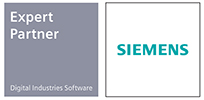It’s essential for companies within the F&B sector to ensure that they’re taking the necessary measures to keep their food and drink products safe for those with specific dietary requirements.
The industry needs to cater for those with allergies or intolerances for several reasons:
- Legal obligation: In many countries, it’s a legal obligation for food businesses to provide allergen information and to take steps to avoid cross-contamination. Failing to do so can result in legal action and reputational damage.
- Customer safety: People with allergies or intolerances face serious health risks if they consume the wrong food, and it is the responsibility of the hospitality industry to ensure that the food they serve is safe for everyone.
- Meeting customer needs: Providing options for those with allergies or intolerances shows that the hospitality industry is responsive to the needs of its customers, which can help build customer loyalty and improve reputation.
- Competitive advantage: With an increasing number of people being diagnosed with food allergies and intolerances, the hospitality industry that caters to this market can gain a competitive advantage by attracting customers who have previously struggled to find safe food options.
- Inclusivity: Providing options for those with allergies or intolerances shows that the hospitality industry is committed to inclusiveness and to creating a welcoming environment for everyone.
With the increasing number of consumers seeking allergen-free options, it’s crucial for companies to maintain exceptional standards whilst working efficiently.
How does effective planning help?
Effective planning is key in ensuring that specific food groups are kept separate. This is a crucial step in avoiding any cross-contamination of allergens in the manufacturing process. By grouping together problematic foods and producing these individually, before having to take apart the machinery or equipment for deep cleaning, companies can reduce the time spent cleaning and swapping machinery.
Using planning and scheduling software
One effective way to achieve this is through the use of effective planning and scheduling software. This software allows companies to organise their production process in a systematic manner, ensuring that the right foods are produced at the right time. This helps to avoid any confusion or misunderstandings and ensures that there is no overlap between the production of different food groups.
Reduce the cleaning time
Another benefit of effective planning is that it helps to reduce the time spent deep cleaning machinery. In a food and beverage factory, deep cleaning can take up to five hours. By producing foods in a regimented order, the need for deep cleaning is significantly reduced. This not only saves time but also reduces the cost of production, as deep cleaning is an expensive process.
Invest in your machinery
In addition to effective planning, companies should also invest in high-quality equipment and machinery. This ensures that the production process is efficient but also that the equipment is safe for use with specific food groups. For example, companies should invest in separate machinery for those with nut allergies, as even traces of nut can cause serious reactions.
Educate your staff
It’s important for companies to ensure that their staff is fully trained in allergen awareness. This includes understanding the different types of allergens, their symptoms and how to avoid cross-contamination. By ensuring that staff is fully trained, companies can reduce the risk of any mistakes being made during the production process. Exceptional staff keep exceptional standards.
Ensure you have accurate records
Finally, companies should ensure that they have robust allergen management systems in place. This includes having clear labelling and ingredient information, as well as keeping accurate records of allergen information for each product. This helps to ensure that consumers can make informed decisions about the products they’re purchasing and reduces the risk of any allergic reactions.
In conclusion, effective planning, investment in high-quality equipment, staff training, and robust allergen management systems are essential in ensuring that companies in the food and beverage sector maintain exceptional standards whilst working efficiently.
Want to implement planning and scheduling software that will benefit your business? Contact us today.







